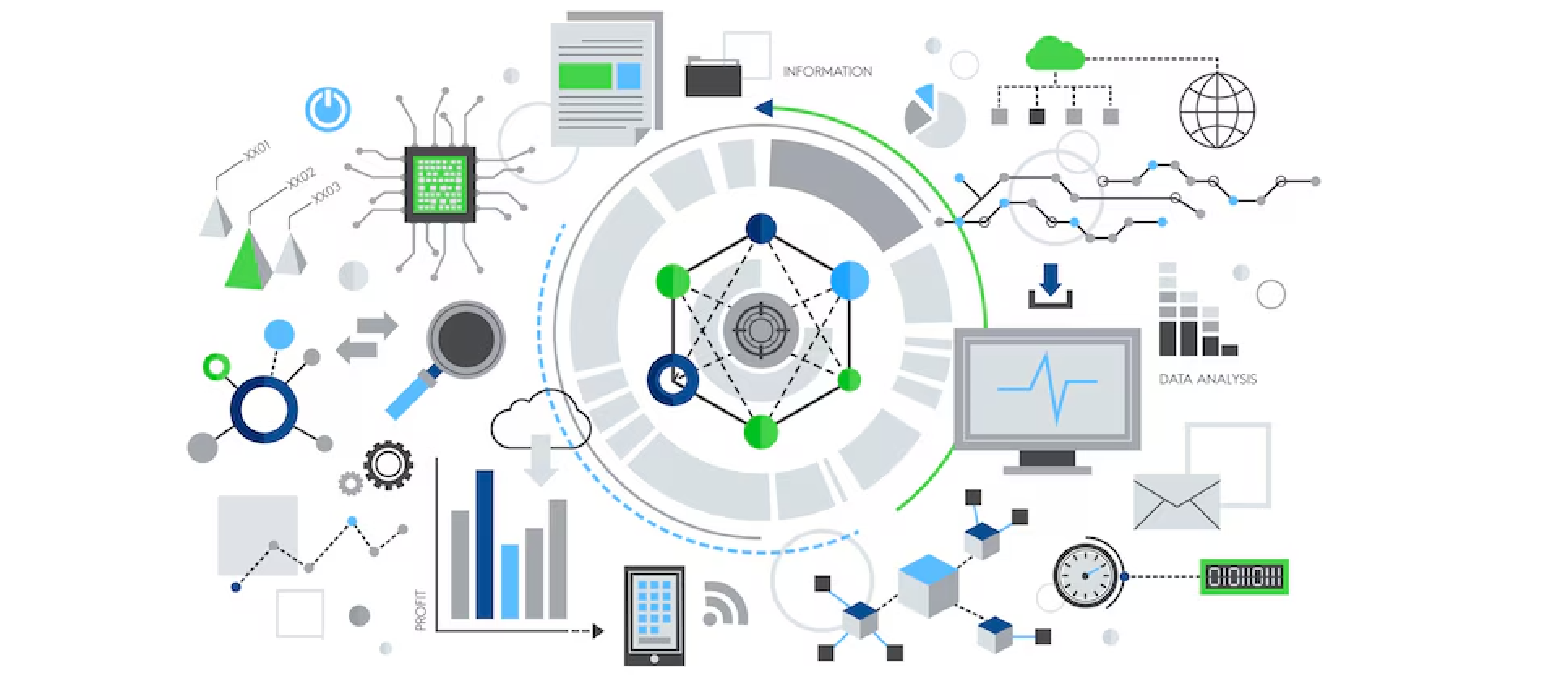Today more than ever, businesses are eager to go through a digital transformation to match their customer expectations and build deeper relationships with them. Companies of all shapes and sizes are pushing hard to deliver a differentiated product in the market that puts them ahead of their competition. The obvious way to achieve this is by focusing on innovation and software disruption. For that, streamlining software delivery is crucial. Shortening the time between product ideation to delivery is crucial if you want to emerge as a true technology disruptor. The implementation of DevOps practices in software development can help you achieve that. Since its inception, DevOps has changed the way application development is undertaken. It brings development and operations people together to accelerate time-to-market and eliminate inefficiencies in the entire product lifecycle.
In this article, we are going to discuss AWS DevOps, its growing popularity among AWS development services providers, and why you should get started with it. Before we scrutinize AWS DevOps, let’s first get the basics right:
Table of Contents
What is DevOps?
According to Amazon, “DevOps is the combination of cultural philosophies, practices, and tools that increases an organization’s ability to deliver applications and services at high velocity: evolving and improving products at a faster pace than organizations using traditional software development and infrastructure management processes”
In simple words, DevOps refers to the practices of bringing development and operations teams together to improve collaboration, productivity, and accelerate time to market. The idea here is to encourage teamwork by building workflows and distributing responsibilities for DevOps.
DevOps is more about a shift in IT culture and serves as an umbrella term that depicts the activities of a team collaborating throughout the product design to development stages. The term DevOps was coined in 2009 by Patric Debois who led emphasis on faster delivery of software applications. It is imperative for businesses today to deploy quality software in defined timelines to stay competitive in the market. Hence, adopting DevOps and agile practices is crucial.
If we talk about DevOps engineers, they tackle the responsibility of syncing the work performed by the development and operations team during a software project. DevOps teams ensure unified software development which means seamless development, deployment, integration, and release of new products.
What is AWS?
A decade ago, companies preferred storing data in their private servers. However, as time went by it became costlier and inefficient. With the growing popularity of the internet, a paradigm shift was observed as most enterprise software development companies started switching to the cloud for data storage. Amazon Web Services (AWS) is among the popular cloud service providers today that offers all services and support (computing capacity, security, and databases) you typically get with an in-house data storage facility.
By taking the assistance of a cloud computing consulting services company, one can easily move their enterprise systems data to the cloud and stop worrying about storage and computation issues.
Now that we have an idea about both DevOps and AWS, let’s jump into the role of DevOps in cloud AWS.
Introduction to DevOps on AWS
If we talk about AWS DevOps, it’s nothing but Amazon’s answer to implementing DevOps practices on its cloud platform with the assistance of various tools and services. Popular AWS DevOps tools include AWS CodeStar, AWS CodePipeline, AWS CodeBuild, AWS CodeDeploy, and AWS Lambda. By using DevOps tools and services in AWS, companies can more rapidly build and deliver products. These services simplify infrastructure management, application code deployment, automate software release activities, and monitor application performance efficiently.
AWS DevOps provides development teams all the necessary tools they require for continuous integration and continuous delivery (CI/CD). Continuous integration is a development practice of pushing code changes or merging code into the central code repository while continuous development is nothing but a development practice where code changes are automatically built, tested, and prepared for release into the production environment. Storing and versioning application source code becomes easier with this practice for developers. Later on, the application can be built, tested, and deployed into an on-premise or AWS environment easily.
Cloud has three primary categories:
- Software as a Service
- Platform as a Service
- Infrastructure as a Service
AWS is mainly a part of the third cloud category, IaaS – as it offers a scalable computing infrastructure that customers completely control, including virtual servers and operating systems.
How to Get Started with AWS DevOps
In order to implement AWS DevOps practices, you need to have a detailed understanding of AWS architecture, tools, CI/CD pipelines, and databases.
Remember by implementing “DevOps in AWS,” you can:
- Automate repetitive, low-value tasks
- Manage complete environments
- Eliminate inefficiencies from the software development lifecycle
- Easily deploy application code
- Effectively provision and manage infrastructure
- Automate software release
Here are some key features of AWS you should know before DevOps implementation:
Simple Platform: Getting started with AWS for DevOps implementation is easy. All you need is a single account. You don’t even require additional setup in most cases.
Fully Managed: AWS lets you focus on core products while handling operating infrastructure on its own.
Scalable: AWS can host thousands of server instances with flexible computing resources.
Customize: Every service available on AWS can be accessed from its CLI or APIs and SDKs. You also get declarative AWS CloudFormation templates to manage your entire AWS infrastructure.
Automated: Manual tasks like deployments, container management, development, etc. can be automated completely using AWS automation service provisioning.
AWS performs impeccably while dealing with DevOps tools. Some of the AWS DevOps tools you should know include:
1. Continuous Integration/Continuous delivery
For building a continuous integration a continuous delivery pipeline in a cloud environment, you need tools like
- AWS CodePipeline for software release workflows
- AWS CodeBuild for build and test code activities
- AWS Code Deploy for automating deployment and fast release of new features
- AWS CodeArtifact for software packages storage, publishing, and sharing
- AWS CodeStar for unified CI/CD projects.
2. MicroServices
Effectively use containers and serverless computing in the powerful microservices architecture available on AWS.
- Amazon Elastic Container Service for Docker production environment
- AWS Lambda for Serverless Computing
3. Infrastructure as a Code
Manage your entire cloud infrastructure on AWS using the popular tools and templates as follows:
- AWS CloudFormation for templated infrastructure provisioning
- AWS OpsWorks for Chef Configuration Management
- AWS Config for Policy as a Code
- AWS System Manager for configuration Management
4. Monitoring and Logging
Get real-time insights on performance and security issues evident in your cloud infrastructure and save logs with tools like:
- Amazon CloudWatch for Cloud and Network Monitoring
- AWS CloudTrail for Activity and API usage tracking
- AWS X-ray for Distributed tracking
5. Platform as a Service
Deploy web applications at scale without worrying about the backend or infrastructure with tools like:
- AWS Elastic Beanstalk for managing web apps
6. Version Control
Build private, secure GIT repositories for complex projects in the cloud using AWS tools like
- AWS CodeCommit for private GIT hosting
With such power-packed DevOps tools and capabilities, you can imagine how effective AWS-DevOps can be for your IT business.
Choosing the Right AWS Professional Services Partner for DevOps Implementation
As you absorb the benefits of the AWS DevOps combination, the real deal starts with finding the right AWS professional services partner. Considering the wide expertise in cloud implementation across multiple industries, A3logics holds the true potential for being the preferred DevOps consulting services partner for your business. We offer a wide spectrum of AWS services, including AWS assessment, migration, development, and DevOps on AWS.
A3logics cloud experts perform a solid assessment of your existing infrastructure, understand your cloud environment challenges, and create an action plan to eradicate those issues. Our teams hold vast experience in implementing complex cloud architectures on AWS and provisioning distributed systems using DevOps over the cloud. Contact us today to get started with AWS DevOps consulting.






